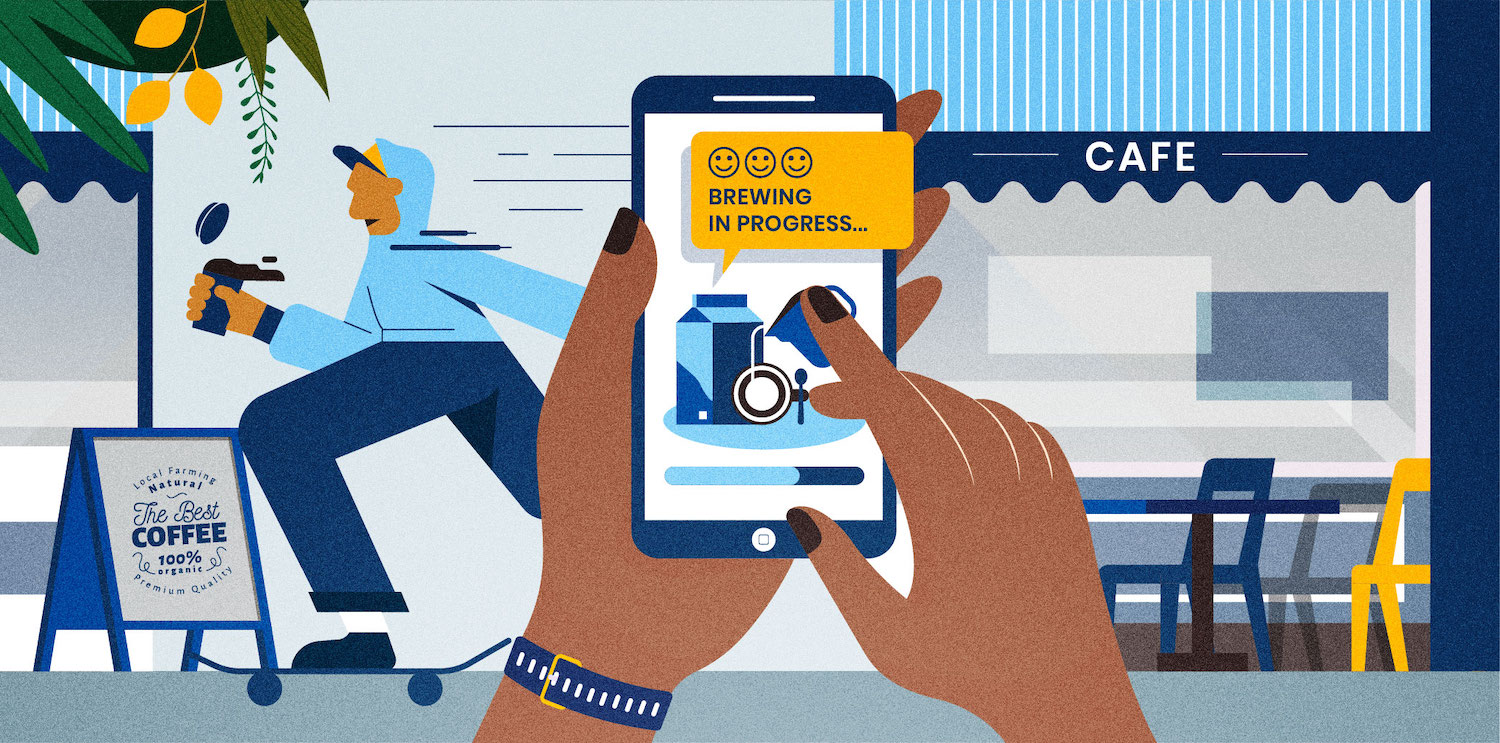Over the past decade, e-commerce has come a long way in Indonesia. Consumers in major cities as well as some smaller towns are now comfortable with placing orders using their smartphones. All manner of products are sold through online marketplaces, and in early 2020, online groceries became a staple.
But the logistics of e-commerce have not kept pace with its broader development. Packages often take two to five business days to reach their destinations. Shipments with shorter distances—often within a city—are becoming faster, with couriers providing same-day and next-day options. This has led to the formulation of quick commerce services, which often promise to place orders in customers’ hands in less than 30 minutes.
Quick commerce operators sell small quantities of goods, usually daily necessities, that are meant to arrive at a customer’s doorstep in as little as 15 minutes. This typically involves operating a series of micro fulfillment hubs that are called “dark stores” in dense residential areas, as opposed to large warehouses that are often built on the outskirts of a city. The idea is to encourage repeat orders at high frequencies.
“We’ve seen how the pandemic has driven both frequency and dependence on digital commerce,” said Adrian Li, managing partner at AC Ventures. “The quick commerce model has had tremendous uptake in several developed and developing markets, especially in dense urban areas. Greater Jakarta is a prime candidate for the replication of this model,” he told KrASIA.
A number of startups have entered this niche sector over the past year, attracting investors’ attention. Some examples are Bananas, which raised USD 1.5 million in February, Astro, which landed a USD 27 million investment in January, and Dropezy, which bagged USD 2.5 million in funding last September.
This type of service isn’t limited to new entrants. Established platforms are also taking advantage of their existing delivery networks and supply chains to introduce their own quick commerce offerings. HappyFresh launched a network of dark stores called HappyFresh Supermarket in early February, and Grab added GrabMart Kilat to its line of services. GrabMart Kilat manages its own inventory and promises 30-minute deliveries, while its regular GrabMart service takes at least an hour.
Quick commerce is an asset-heavy business model because the providers must maintain fulfillment hubs and delivery fleets. This also leads to recurring overhead. With the hefty initial investment that is involved, there are questions about whether this form of e-commerce is sustainable in the long run.
Large order volumes are key
Rent for dark stores, procurement costs, packaging, and wages are all part of the operational expenses of quick commerce companies.
Nitesh Chellaram, co-founder and COO of Dropezy, told KrASIA that the company has 15 dark stores and around 100 drivers. The average time it takes for an order to reach a customer is 13 minutes. “After payment is settled, the order goes to the closest store and a picker will collect items right away. The items will be handed to a packer who will put the products into bags, which are given to our drivers,” he explained.
Quick commerce startups take revenues from product margins and delivery fees. To maximize profit, Chellaram said Dropezy purchases supplies in bulk at wholesale prices. The suppliers give the company insight into customers’ demands in various neighborhoods. This in turn shapes the set of stock-keeping units (SKUs) shipped to each hub.
“For example, customers in South Jakarta prefer to buy Nescafé coffee, while those in East Jakarta prefer local brands like Kopi Kapal Api,” Chellaram said. By understanding these buying patterns, Dropezy can match merchandise with customers before they even place an order.
“In the grocery space, customers frequently buy the same products. And when they experience the convenience of speedy delivery, they spend more on the same platform,” Chellaram said. “In the end, we expect each dark store to be self-sufficient and profitable.”
Vincent Tjendra, CEO of Astro shared a similar sentiment. “As we earn margins from every order, we need to achieve economies of scale for our orders. This will allow us to achieve profitability and sustainability in the long run,” he told KrASIA. Astro operates 20 dark stores in Jakarta and South Tangerang, with a delivery radius of up to three kilometers. It employs ten to 20 people at each store and over 100 delivery drivers, and promises 15 minutes-delivery.
Only for urban hubs
AC Ventures managing partner Adrian Li described quick commerce as a “premium” service that targets customers who are less price-sensitive and value convenience above all else. This type of buyer tends to return to the same platform and make frequent purchases.
That means the format tends to work best in densely populated metro areas, where demand for near-instant delivery is high. Moreover, premium residential areas in Jakarta generally have better roads than neighborhoods in tier-2 and tier-3 cities, making swift deliveries possible in the capital.
Moreover, the half-hour delivery guarantee that comes with higher prices simply doesn’t hold the same appeal in smaller towns and rural areas, where purchasing power is lower and the pace of life is slower.
Quick commerce in Indonesia is still in the nascent stage, but industry players are convinced of its potential, considering that demand for online groceries continues to rise in urban areas.
“Positive unit economics can be optimized through SKU efficiencies, cheap rent for dark stores, and implementation of technology to maintain inventories and last-mile delivery. I believe this could turn into a sustainable business. By the end of the year, I think we’ll see two or three startups that are able to scale up quickly and get sufficient funding,” said Li.

